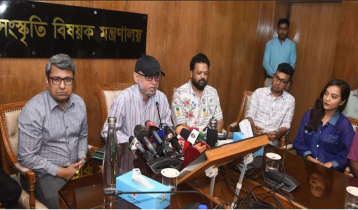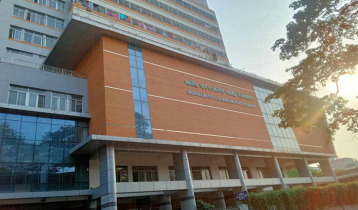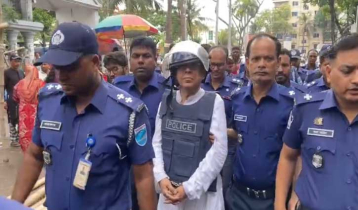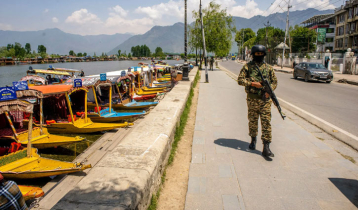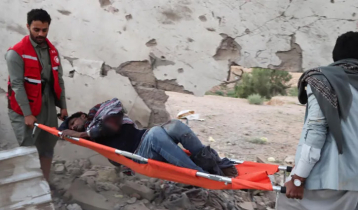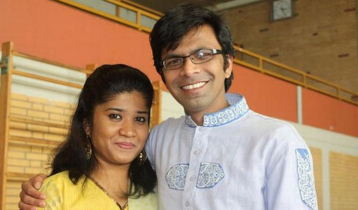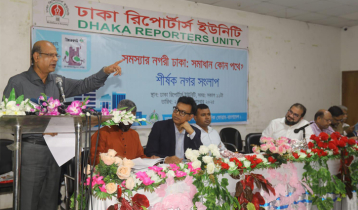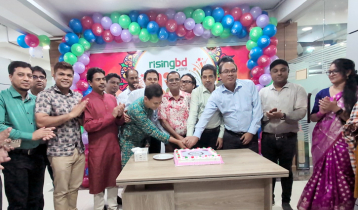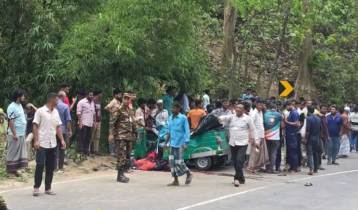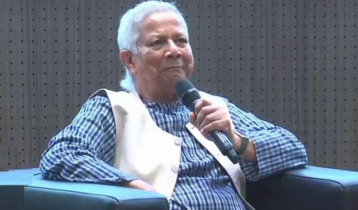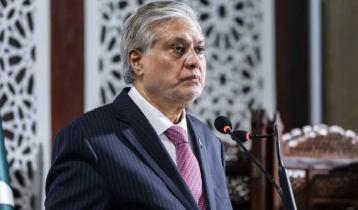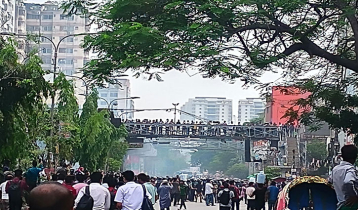Cancer care facility should be increased in country
Manzurul Alam Mukul || risingbd.com
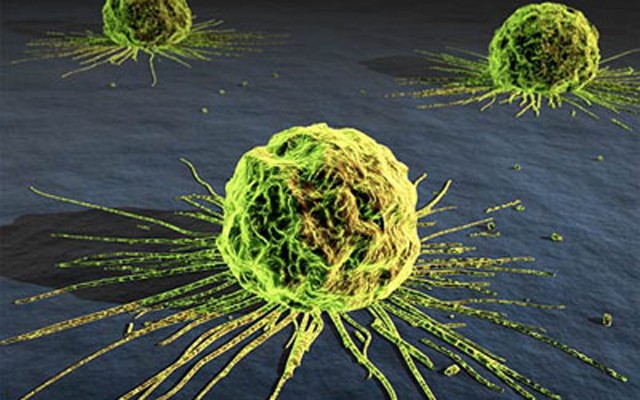
Manzurul Alam Mukul: The health sector of Bangladesh is facing a serious challenge as non-communicable diseases like cancer pose a grave threat, especially because facilities for treatment continue to remain poor.
Cancer kills more people globally then tuberculosis, HIV, and malaria combined.
According to World Health Organisation (WHO), 8.2 million people die of cancer every year in the world while around 10.50 crore women are affected by breast cancer, the second deadly disease across the world each year globally and most of them are residing in the third world countries, including Bangladesh.
The WHO also warns that the number of new cases is expected to rise by about 70 percent over the next two decades, with developing countries facing the biggest share of risk.
According to World Health Organisation (WHO) updated estimation, there are about 12 lakh cancer patients in the country and every year two lakh people are attacked by with different forms of cancer such as lung, throat, cervical, breast and oral and larynx. In the 1960s, almost 25 per cent of global cancer burden was diagnosed in low-income and lower-middle-income countries. In 2010, nearly 55 per cent of the global cancer burden was found in these countries.
By 2030, over 13 million people will die from cancer every year. Almost 9 million (about 70 percent) of these deaths will be in developing countries. By 2050, at the present growth rate, the chances of contracting cancer in their lifetime for the people living in developing countries will be 50-60 per cent. The cancer rate will increase from 650,000 to 2.2 million per year.
According to GLOBOCAN 2008, the 5-year cancer survival prevalence in Bangladesh is 291.2 thousand.
Cancer treatment in the country is fraught with various complexities. Different types of cancer are spreading fast, but the shortage of adequate medicines, equipment and manpower for the effective treatment of this disease is acute.
According to the WHO, Bangladesh should have at least 160 radiotherapy centres considering its population. But the country has only 16 -- nine government hospitals, six private hospitals and one Combined Military Hospital.
Majority of the patients in the country seek treatment when their cancer is at the advanced stage when they need radiotherapy. Radiotherapy or radiation therapy is part of cancer treatment to control or kill malignant cells.
The only tertiary-level cancer hospital of the country, National Institute of Cancer Research & Hospital (NICRH), was founded in 1981 by Rotary Club of Dhaka as Rotary Cancer Detection Centre. It was handed over to the government in 1986. It started its indoor activities with 50 beds in 1992. The cobalt 60 machine was installed at this center in 1995. The government declared this center as a center of excellence in 2001.
Only some 500 patients are treated with radiotherapy at NICRH everyday against the demand over 1000. The NICRH needs at least 12 radiotherapy machines, but it has only six.
Dhaka Medical College Hospital (DMCH) has only two radiotherapy machines. Outside the capital, the government hospitals have radiotherapy machines. Many of them were bought at least 20 years ago and do not function properly, sources said.
The first teletherapy (cobalt 60) machine was installed at a private hospital named Kumudini Hospital at Mirzapur in 1953. Although it pioneered the radiation treatment in the country, it could not sustain this facility owing to overwhelming challenges.
A big revolution occurred in the management of cancer when the first linear accelerator was installed at NICRH in 2006.
Furthermore, there is a linear accelerator at Combined Military Hospital (CMH) and at a private oncology center (Delta Oncology Center) each.
Another private center named Delta Oncology Centre started its activity at Dhaka in the year 1994. At present, this is the largest private cancer care center in the country.
In addition, Square Hospital and United Hospital at Dhaka and Khwaja Yunus Ali Medical College Hospital in Sirajganj are also equipped with modern dual-energy linear accelerator.
Recently, two local pharmaceutical companies (Beacon Pharmaceuticals Ltd and Techno Drugs Ltd) started manufacturing the chemotherapy drugs within Bangladesh and have brought the cost of chemotherapy within the reach of general population.
Some non-governmental organizations (NGOs) are also involved in cancer care. Ahsania Mission, Cancer Society, Ashic foundation, Digonta Memorial, and Mosabbir Cancer Center are some such examples that are contributing to the field of cancer care with their own initiatives.
Few professional bodies like Oncology Club (Bangladesh Chapter of SAARC Federation of Oncologists), Cancer Society, Bangladesh Society of Radiation Oncologists, Gynae Oncology Society, etc., are also making significant contribution toward improvement of cancer care facilities of the country.
The government has recently purchased three radiotherapy machines to be installed at Chittagong, Khulna and Barisal medical college hospitals, according to Directorate General of Health Services (DGHS) sources.
International organizations like International Atomic Energy Agency (IAEA) have been very much supportive in the development of manpower of radiation therapy. They also provided significant support in procuring radiation therapy equipment under their two technical cooperation projects for NICRH and BSMMU.
Tobacco, alcohol, obesity, food contamination, unhealthy diet with low fruit and vegetable intake, lack of physical activity, infection, radiation, air pollution, unhealthy lifestyle, viral infections, family history, ageing and obesity are among the main causes for cancer.
Tobacco use-in both smoke and smokeless forms-accounts for 22 per cent of cancer deaths globally, and is a leading cause of the disease in the South-East Asia Region.
Occupational hazards and exposure to environmental substances continue to be a source of cancer in the region. The region has 14 of the world’s top 20 polluted cities.
A health expert said one fifth of cancer patients in Bangladesh suffer from the disease because of environmental degradation. Other factors like biological and chemical contamination as well as food consumption and life style have direct linkage to cancer.
He said that industrial units are dumping untreated waste indiscriminately into wetlands and open places causing water, environment and soil pollution result in mixing of poisonous elements like lead, chromium and cadmium in the food chain.
In 2013, the International Agency for Research on Cancer (IARC), the specialised cancer agency of WHO, classified outdoor air pollution as carcinogenic. It issued a statement saying there was sufficient evidence that exposure to outdoor air pollution causes lung cancer and increases risk of bladder cancer.
Lung and breast cancer are the most prevalent forms of cancers among male and female patients respectively in Bangladesh.
In the present world within every two-minute one woman die due to cervical cancer. It is the second most common cancer in women worldwide which is the leading cause of deaths of women in developing countries.
Eighteen percent of cancer infected women die due to cervical cancer in Bangladesh. Every year more than 11000 women die due to cervical cancer. It means in Bangladesh everyday average 28 women die in cervical cancer.
Women are unaware of risk factors like sexual activity at an early age, extramarital sexual relationships are associated with cervical cancer.
According to official data, about 15,000 women are affected with breast cancer each year in Bangladesh and over 7,000 of them die.
If cancer is detected at its early stage, it is quite possible to cure the disease at a minimum cost. According to the World Health Organisation (WHO), about 50 per cent of cancer can be prevented.
In Bangladesh, cancer casualty is very high as up to 90 percent patients report it at the last stage.
Smoking still causes nearly 80 per cent of all lung cancers. Smokers should quit the habit to reduce the risk for themselves and their families since passive smoking can also cause the disease.
Only by consuming healthy and nutritious food and by regularly engaging in physical activities, the chances of cancer can decrease significantly.
The World Cancer Day was observed on February 4 in Bangladesh as elsewhere across the world for raising awareness and education about cancer and pressing governments and individuals to take action against the disease.
This year the theme of the Day was ‘We can. I can’, to explore how everyone - as a collective or as individuals - can do their part to reduce the global burden of cancer’.
The government should set up cancer treatment facilities at division, district and upazila levels where people can go for early detection and regular screening. In particular, patients from rural areas suffer a lot at the hands of touts when they come to city hospitals and clinics. Steps should be taken to stop those.
A large number of poor patients die of cancer as they are unable to arrange the money needed for proper treatment. The government should have funds to provide free chemotherapy and radiotherapy to the poor.
If a patient is diagnosed with cancer, the first thing he or she requires is counselling. Proper disclosure of diagnosis, correcting patients` myths about cancer and explaining the proper treatment strategies to the patient and relatives result in better acceptance and also reduces mental trauma.
The combined effort of government and private sector should come ahead in cancer management.
Risingbd/DHAKA/Feb 29, 2016
risingbd.com



